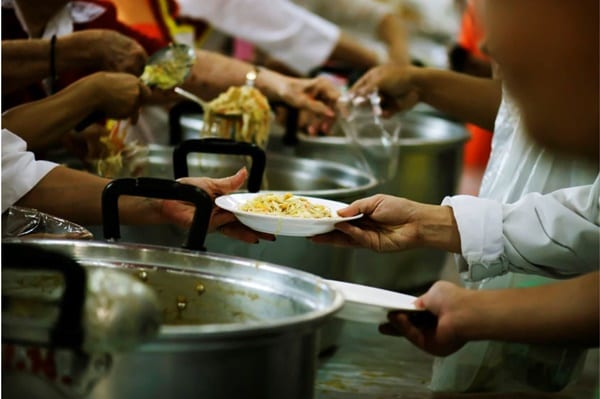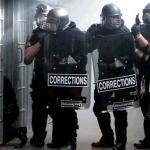 It has been over a week since the Trump administration unveiled the Budget of Death.
It has been over a week since the Trump administration unveiled the Budget of Death.
While various reports have catalogued the 19 agencies that would be terminated and the 61 programs that would lose their funding and commentators have denounced the heartlessness of a budget that cuts everything from peace studies to public broadcasting, I have been struggling to find something new to say to put this fiscal fiasco into perspective, without descending into rage or becoming overwhelmed with despair. But a week later, I got nothing. Nothing new. Because this budget proposal – which, though unlikely to pass in its entirety, still portends a bleak future – merely leads us further down the road of imperialism into the dark recesses of militarism and mercilessness that have been waiting for us ever since we started this journey of perpetual war.
$54 billion additional dollars are proposed for defense, with prominent politicians claiming that this is not enough, while resources for the poor and vulnerable, the environment, labor, housing and healthcare – to name a few – are eradicated. “Budget of Death,” dramatic as it may sound, is the only way to describe a proposal to pour money into the machinery of mass murder while eliminating programs geared toward enhancing the health and quality of life of the citizenry. It is painful to imagine what the true human cost of this proposal will look like. Students will struggle in under-funded schools, their bellies growling without free or low-cost lunch. Many will give up any hope for college because funding for postsecondary education will also be cut. Millions will no longer have access to clean drinking water when funding for cleaning the Great Lakes – which make up 20% of the world’s fresh water supply. – is depleted. Malnutrition rates will grow exponentially. Unemployment and poverty will rise. In human terms, this will look like despair, disease, and death.
This is what the cost of war looks like.
Or, more accurately, this is the domestic face of U.S. imperialism, turning a blind eye to the real needs of the people in the name of defeating an enemy that it fuels with every night raid and airstrike. The face of poverty and pain is one human reflection of war. As Eisenhower put it so well 64 years ago, “Every gun that is made, every warship launched, every rocket fired signifies, in the final sense, a theft from those who hunger and are not fed, those who are cold and are not clothed.” As often as this quote is invoked, it is rarely envisioned when politicians call for more military spending and a “balanced budget” at the same time. Something has to give, and the Trump budget proposal has spelled out what that something is. Of course, each program on the chopping block has received far less money than our overly-bloated military in the first place. The further decimation of these programs is the slow death of the American soul.
And the slow death of the American soul is the counterpart to the sudden death of our military’s victims around the world. If poverty and pain are the domestic face of U.S. imperialism, then piles of rubble that used to be mosques or homes are the hallmarks of our military abroad, along with broken families, refugee camps overflowing with the displaced from our violence, famine from blockades enforced with our weaponry, and more. Every gun that is made, every warship launched signifies theft from the poor at home and death to the poor around the world. While the Trump administration’s budget unveils the former, we remain largely shielded from the latter.
President Trump did not set us on the course of war that devours resources and souls, even as he speeds us along its destructive path. We need to see this budget as a byproduct of perpetual and self-perpetuating war, the culmination of a culture of enmity at the expense of empathy. So while we must contact our representatives and tell them that the human cost of this budget is unacceptable, and while cases must be made for every individual program at risk, we need a deeper healing to revive our souls. We need to remember the humanity of those not only on the losing end of our budget, but also on the receiving end of our bombs. We need to transform the blindness of fear and hate into the clear vision of compassion.
War is costing us not only in blood and treasure. It is costing us our faith in humanity, our kindness, our future. When we put our trust in weapons, we erode our trust in people, isolating ourselves by carving out an identity against others. The spirit of hostility we direct overseas circles back like a boomerang, breeding fear and cruelty. Militarization of the police, panicked shootings of unarmed, mostly black or brown people, and bullying of minorities are just some of the consequences of investing in enmity. Mercilessness festers, spreads, and threatens to swallow us whole.
Yet we are awakening now to at least some of the consequences of devoting our dollars – along with our mental and physical energy – toward death. As we contemplate the toll endless war spending is taking on education, the environment, housing and healthcare, as we see all around us the human faces of this deprivation – the despair and frustration – may our hearts expand in empathy not only to our immediate neighbors, but to our neighbors around the world. The loss that we experience through spending our resources on destruction is the slow unveiling of the reflection of the loss our wars are inflicting upon them. None of us can afford to lose anymore.
I place my hope in the awakening of our human conscience as we come to recognize not only what war has cost us, but what it is costing our brothers and sisters. My hope is built on the knowledge that we are made in the image of Love, interconnected and bound to each other. As we have eroded our own souls through our violence, we may repair and restore them through our love, building relationships that make us stronger, finding our identity not over and against but with and for one another.
Where our treasure is, there our heart will be also. So let us invest our treasure in building one-another up, here and around the world, that we may mend our hearts and resurrect our humanity.
Image: Stock Photo from 123rf.com by dimjul
Stay in the loop! Like Teaching Nonviolent Atonement on Facebook!














